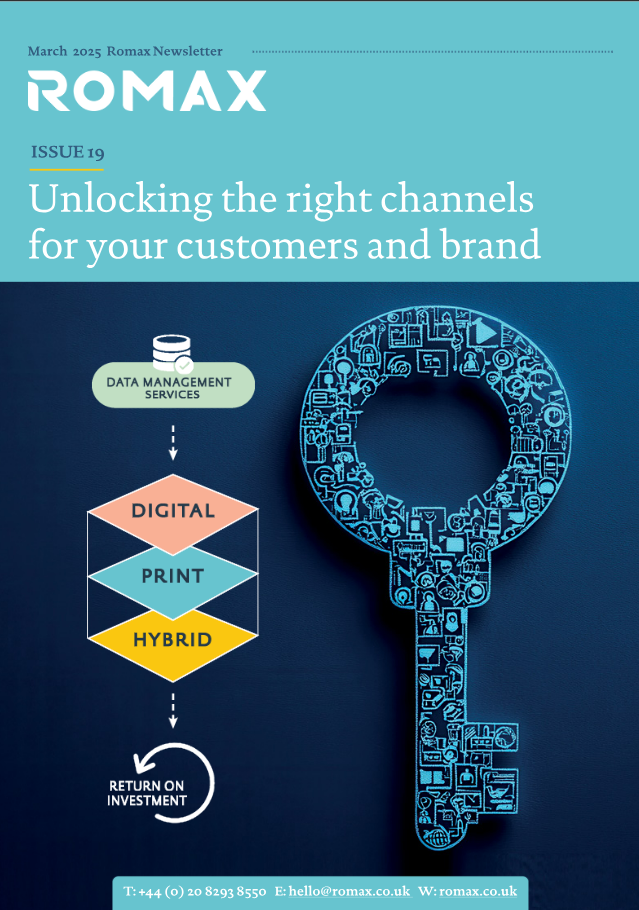Data is being touted as the new marketing darling. Yet in spite of widespread availability of amazing, existing, proven data collection, mining, processing and automation tools mainstream marketers haven’t been making the most out of a great situation.
Some industries like banking, insurance, financial services, airlines and telecommunications have to be data-centric marketers because their margins and share of wallet demand it. Yet even in many of these firms, data lives in siloes and lacks integrated analytics necessary to significantly impact business growth. In retail and grocery, we’ve been playing around with purchase histories, private label credit cards and loyalty programmes, but very few truly integrate multi-channel data, build impactful data markets or fully exploit the power in the data.
So why would rational competitive marketers underutilize a suite of tools that could make them smarter, faster and richer?
Here are 6 reasons:
Phobia of Mathematics – It sounds funny, but it’s real. Most of us aren’t great with numbers, are fearful of mathematics or are still shaking off or suffering flashbacks of mathematics anxiety from school. Couple this with the general feeling that mathematics cancels or constrains creativity and you have an attitudinal bias amongst marketers against using the data at hand.
Talent Deficit – The really good statistical guys don’t want to work in marketing or advertising, even if it’s a target rich social environment. Agencies, marketers, e-merchants and publishers are constantly trolling for hard-to-find analysts, database administrators and database marketers and coming up short. For real statistical savants, advertising is baby stuff that doesn’t pay well. Plus, there are few consensus metrics or best practices, much less proven analytical formulas to apply. Another hurdle is just getting the data by finessing internal technical and political structures. It is not anything that introverted analysts want to do.
Low IT Priority – Database projects are low priority generally for corporate IT leaders. The relatively low complexity of the tasks or systems and the absence of a perceived ROI benefit ranks marketing needs far below complex, big budget aspirational IT landscape, software change-out or architecture projects. Marketing data applications tend to require much more hands-on technical support and service because marketers are unwilling or unable to run the software themselves. So IT guys run the other way.
Cost-Value Perceptions – Too many marketers and senior managers don’t see the incredible pay-off from incremental marketing data investments. In many cases, modest costs yield immediate and significant lift in awareness, traffic, engagement and sales. Decision-makers don’t understand what the technology is or how it’s applied. It’s much more complex and confusing than making ads or building websites and because it’s perceived as plumbing, data investments can be cut, delayed or ignored without fear of harming business results. Nobody gets promoted or wins awards for smart database work. Ironically the truth is exactly the opposite; by tightening up the plumbing and crunching the numbers you can add incremental value quickly and predictably.
Vendors are part of this problem because they focus overwhelmingly on the features and functions rather than on the pay-off from their tools and services. And while there are several ways to automate data-collection or lead generation, and countless predictive models and even more approaches to automating e-mail delivery, few vendors can clearly and simply communicate to a disinterested CFO that an investment of X will pay out 10X in a time frame that would surprise everyone.
Data Overload – Many brands complain that they collect mountains of data that is labour-intensive to process and make sense of. This argument says it’s too overwhelming so forget it. It belies ignorance about marketing since top marketers know that in most cases a small number of variables can predict important insights. The savvy players are using predictive models that not only optimize messaging, offers and costs but get smarter over time as they integrate more and more purchase and behavioural data points. These guys are willing to trade off customer insight, practical segmentation, personalization, channel strategy, customer intimacy and message cues because the bag of numbers looks too big.
Big Brother – Another segment of data deniers is focused on either a genuine concern for customer privacy or on a fear of being perceived or prosecuted for violating privacy rules. The reality is that we have pretty good transparent consumer privacy laws and enforcement in-effect. None of which has dampened consumers’ willingness to trade their personal data for deeper deals and relationships.
So, there you have it – we have useful, accessible and affordable tools that are underutilized because they aren’t sexy, understood or the digital-mobile-social flavour-of-the-week. We need to get over these roadblocks and embrace data driven marketing.
Contact Us
« Olympic and Paralympic Games London 2012 – Preparedness Information on VAT and Postal Services from 2nd April 2012 »




